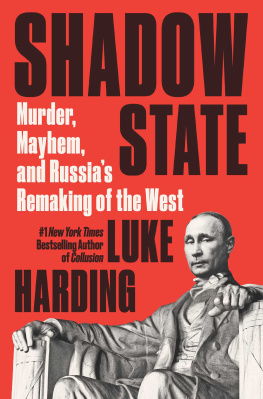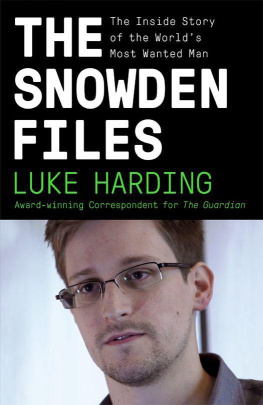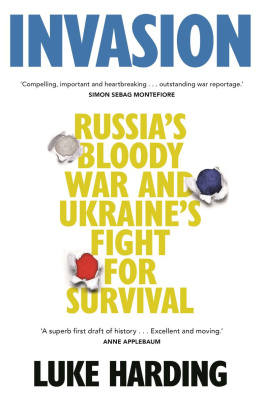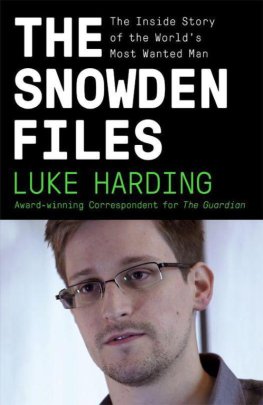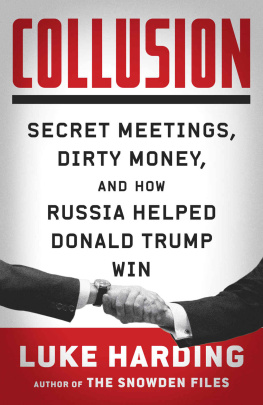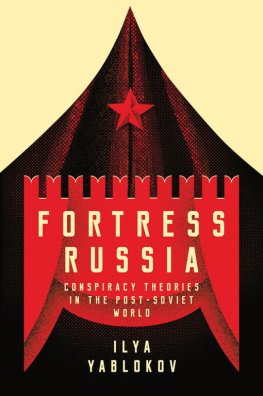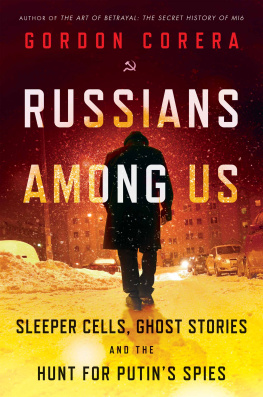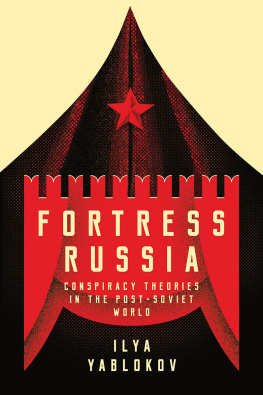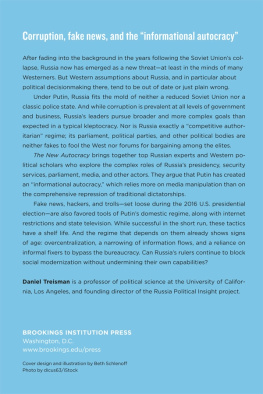For John and Felicity
Contents
The Russian players in the story of Vladimir Putin and the West are typically seen as little more than names. And confusing ones at that. Petrov and Boshirov, Aslanov and Morenets, Prigozhin and Udod... we get lost amid unfamiliar surnames and patronymics. They feature in indictments. But who they are remains a mystery.
In fact, the men who took part in the Kremlins mission to upend US democracy, and to wipe out traitors in the United Kingdom, are real individuals. Complex ones, with ambitions of their own, childhoods, backstories. Some are true believers; others, cynics. They are shaped by common experiences: the collapse of the Soviet Union; the resurgence of national pride under Putin; and the rise of what you might call a shadow statea regime of spies operating in the darkness.
These individuals have multiple identities. They roam across Europe and beyond. Russia has used them to wage an increasingly bold war, an asymmetric one featuring fake news, cyber intrusions, and the poisoning of our politics through dirty money. The tide of disinformation has been effective. Conspiracy theories have flourished not just in former Communist territories but inside the White House. Meanwhile, Russias kleptocratic model has gained ground. The same traits of corruption and dissembling are visible in Washington. Shadow actors have bent foreign policy to their advantage.
If America is to push back against Moscows aggression, it needs to understand its adversaries better, lest recent history repeat itself. They are assassins and fathers; soldiers and husbands; hackers and lonely hearts.
This is their untold story.
MoscowLondonSalisburyWashington, DC
MARCH 2018
A wolf circling sheep.
CHRISTOPHER STEELE ON VLADIMIR PUTIN
The two men who got on a flight from Moscow to London didnt look like assassins. They were dressed inconspicuously, in jeans and fleece jackets. Their names were Alexander Petrov and Ruslan Boshirov. At least that is what their Russian passports said. Both were about forty. Neither seemed suspicious. Businessmen? Or tourists maybe?
The plane trundled down the icy runway. In Moscow the temperature was cold and raw. It had fallen below -10C, not unusual for early March. In Britain it had been snowing. The pair had brought woolly hats. And a couple of satchels. One of them contained a bottle of what looked like French perfume. In the event that they were stopped at UK customs, the Nina Ricci fragrance might be explained away as a gifta gallant one, with Made in France on the box.
Aeroflot flight SU2588 touched down at Gatwick Airport, 30 miles south of central London. It was Friday, March 2, 2018, and midafternoon. The two Russians made their way to passport control. Boshirov had dark hair and a goatee; Petrov was clean-shaven, his hairline thinning as middle age set in. We can only guess their mood. If they were nervous, no official noticed.
The British security service has a database of persons of interestterrorists, criminals, fraudsters. Apparently Petrov and Boshirov werent on it. At immigration their passports and visas were checked and they were nodded through. What the UK border force didnt know is that the visitors from Moscow were actually spiesones working for a hostile foreign power.
They were career officers with Russian military intelligence. Colonels, even. Their real names were Anatoliy Chepiga (Boshirov) and Alexander Mishkin (Petrov). Their service had created a fake identity, and helpfully in the best traditions of Cold War spycraft had supplied them with real passports that supported their fictitious cover.
Chepiga and Mishkin had come to London on a secret mission.
They were there to murder someone.
Probably this wasnt their first such assignment, known by the KGB as mokroye delo or wet work. Naturally, details of such activities are hard to come by, but travel records show a number of trips to Europe. This work had taken them to Amsterdam, Frankfurt, Paris, Geneva. Their employer back in Moscow was the GRU, or Glavnoye Razvedyvatelnoye Upravleniye. Full title: the Main Intelligence Directorate of the General Staff of the Armed Forces of the Russian Federation.
The GRU is the most powerful and secretive of Russias three spy agencies. Its military, under the command of the Defense Ministry and the General Staff. Back in the USSR, the army-led GRU and the spy-led KGB were often in conflict. Some of this rivalry spilled into the post-Communist era of Boris Yeltsin and Putin. The GRU was in competition with the FSB, the KGBs domestic successor, which Putin headed before becoming prime minister in 1999, and then president. And with the SVR, Moscows foreign intelligence agency, the former KGBs first directorate, operating under diplomatic cover.
The FSB handled security at home. It sniffed out and quashed opposition to the Kremlin, arresting students and political activists, locking up bloggers and protesters, and maintaining order. From time to time it carried out foreign operations. Most took place in the near abroadwithin neighboring former Soviet republics, which Moscow continued to view as parts of its imperium.
The GRU, by contrast, was global. It dealt with external threats. Its mandate was everywhere. The organizations activities ranged from traditional military deployments, in war zones such as Syria, to coups and invasions. Its officers saw themselves as part of a glorious tradition, stretching back to Russias battles against Napoleon and Crimea, through to the First and Second World Warsthe latter the Great Patriotic War, as Russians call itand the Soviet conflict in Afghanistan.
Murder was something of a throwback to the GRUs twentieth-century heyday. The revolutionary state of Vladimir Lenin and its various successors had plenty of experience in political killing. Lenin, Stalin, even the ostensibly reformist regime of Khrushchev, had all sent agents to snuff out traitors. These deaths were seen as necessary to protect a noble and progressive state besieged by capitalist enemies. And by nationalist ones. Moscow hunted down Ukrainian leaders abroad, including Stepan Bandera, killed in Munich in 1959 by a KGB assassin using a cyanide spray pistol hidden in a newspaper.
In the late 1980s Gorbachev ended such killings. It was a new age in which Russia and the West were friends. The next Russian leader, Boris Yeltsin, confirmed and expanded this collaboration. Under Putin, however, murders stealthily resumed. Journalists, political critics, an ex-deputy prime minister turned irritant... all died in opaque ways. A former KGB officer himself, Putin had a particular loathing for those who betrayed the Fatherland. These people were scum. Traitors got what was coming to them, he said.
ARRIVING AT GATWICK, Chepiga and Mishkin picked up their travel suitcases. They strolled through a green corridor that said Nothing to Declare. An automatic camera captured them exiting through parallel lanes. They headed into the capital. No one came after them.
So far, so easy. Britainit appearedwas soft and weak. Despite a string of LondonMoscow spy scandals, a country described unflatteringly on Russian television as foggy Albion was unprepared and sleepy. True, British spooks had picked up an unusual level of activity at the Russian embassy in Kensington. But this hadnt been connected to the two travelers with backpacks, riding the subway like anybody else.
The pair emerged into the daylight and went to the City Stay Hotel in Bow, East London. They were staying for two nights. The place was anonymous and a little shabby: Asian receptionist, a worn swivel chair behind a desk, ordinary rooms, white-painted walls. Next door is a Barclays Bank. When I stopped by, a woman in a headscarf was in a line at an ATM. Buses, cars, and taxis trundled past. There was a perpetual traffic rumble.

